17 start with W start with W

Since it sprang from obscurity to international headlines in 2004, the name “Darfur” has become synonymous with war, massacre, and humanitarian crisis. The crisis had, however, been brewing for far longer, its causes neglected by both scholars and Sudanese leaders.
War in Darfur and the Search for Peace is a series of essays by leading Sudanese and international specialists on Darfur, combining original research and analysis. The book provides in-depth analysis of the origins and dimensions of the conflict, including detailed accounts of the evolution of ethnic and religious identities, the breakdown of local administration, the emergence of Arab militia and resistance movements, and regional dimensions to the conflict.
The study also focuses on the search for peace, with contributions by those most closely engaged in local and international efforts to resolve the conflict. This includes documentation and analysis of the warring parties’ ideologies and agendas and how they have changed in the course of the conflict, and examination of the efforts made by Sudanese civil and political leaders, the African Union, and other international actors to bring the war to an end.

In Water War in the Klamath Basin, legal scholars Holly Doremus and A. Dan Tarlock examine the genesis of the crisis and its fallout, offering a comprehensive review of the event, the history leading up to it, and the lessons it holds for anyone seeking to understand conflicts over water use in the arid West. The authors focus primarily on the legal institutions that contributed to the conflict—what they call “the accretion of unintegrated resource management and environmental laws” that make environmental protection so challenging, especially in politically divided regions with a long-standing history of entitlement-based resource allocation.
Water War in the Klamath Basin explores common elements fundamental to natural resource conflicts that must be overcome if conflicts are to be resolved. It is a fascinating look at a topic of importance for anyone concerned with the management, use, and conservation of increasingly limited natural resources.

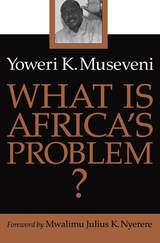
The president of Uganda addresses key questions about Africa’s future.
Recent seismic shifts in Congo and Rwanda have exposed the continued volatility of the state of affairs in central Africa. As African states have shaken off their postcolonial despots, new leaders with sweeping ideas about a pan-African alliance have emerged-and yet the internecine struggles go on. What is Africa’s problem? As one of the leaders expressing a broad and forceful vision for Africa’s future, Uganda’s Yoweri K. Museveni is perhaps better placed than anyone in the world to address the very question his book poses.
In 1986, after more than a decade of armed struggle, a rebellion led by Museveni toppled the dictatorship of Idi Amin, and Museveni, at 42, became president of Uganda, a country at that time in near total disarray. Since then, Uganda has made remarkable strides in political, civic, and economic arenas, and Museveni has assumed the role of "the éminence grise of the new leadership in central Africa" (Philip Gourevitch, New Yorker). As such, he has proven a powerful force for change, not just in Uganda but across the turbulent span of African states.This collection of Museveni’s writings and speeches lays out the possibilities for social change in Africa. Working with a broad historical understanding and an intimate knowledge of the problems at hand, Museveni describes how movements can be formed to foster democracy, how class consciousness can transcend tribal differences in the development of democratic institutions, and how the politics of identity operate in postcolonial Africa. Museveni’s own contributions to the overthrow of Zaire’s Mobutu Sese Seko and to the political transformation of Uganda suggest the kind of change that may sweep Africa in decades to come. What Is Africa’s Problem? gives a firsthand look at what those changes might be, how they might come about, and what they might mean.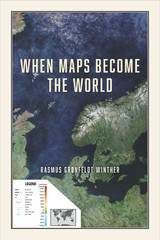
This book is about the promises and perils of map thinking. Maps are purpose-driven abstractions, discarding detail to highlight only particular features of a territory. By preserving certain features at the expense of others, they can be used to reinforce a privileged position.
When Maps Become the World shows us how the scientific theories, models, and concepts we use to intervene in the world function as maps, and explores the consequences of this, both good and bad. We increasingly understand the world around us in terms of models, to the extent that we often take the models for reality. Winther explains how in time, our historical representations in science, in cartography, and in our stories about ourselves replace individual memories and become dominant social narratives—they become reality, and they can remake the world.
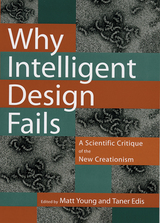
Is Darwinian evolution established fact, or a dogma ready to be overtaken by "intelligent design"? This is the debate raging in courtrooms and classrooms across the country.
Why Intelligent Design Fails assembles a team of physicists, biologists, computer scientists, mathematicians, and archaeologists to examine intelligent design from a scientific perspective. They consistently find grandiose claims without merit.
Contributors take intelligent design's two most famous claims--irreducible complexity and information-based arguments--and show that neither challenges Darwinian evolution. They also discuss thermodynamics and self-organization; the ways human design is actually identified in fields such as forensic archaeology; how research in machine intelligence indicates that intelligence itself is the product of chance and necessity; and cosmological fine-tuning arguments.
Intelligent design turns out to be a scientific mistake, but a mistake whose details highlight the amazing power of Darwinian thinking and the wonders of a complex world without design.

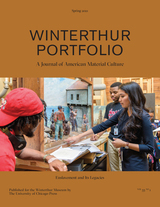
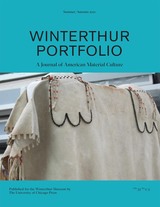
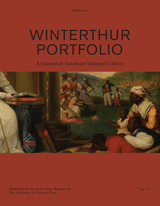
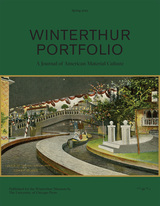
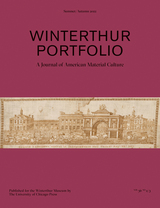
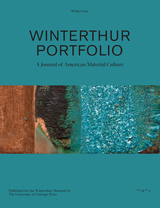
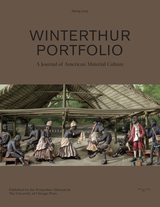


In Volume 2 of Women's History in Global Perspective, Bonnie G. Smith curates more essays by pioneering thinkers on issues that have shaped the history of women, this time with a focus on particular places and particular eras. The collection examines women from prehistory to ancient civilizations in Egypt, Israel, India, and beyond; a survey of women history in China, Japan, and Korea; women and gender in South and South East Asia; medieval women; women and gender in Colonial Latin America; and the history of women in the United States to 1865.
Inclusive and wide-ranging, Women's History in Global Perspective, Volume 2, offers an invaluable collection of feminist scholarship on overlooked and marginalized topics.
Contributors: Judith M. Bennett, Kathleen Brown, Brady Hughes, Sarah Shaver Hughes, Susan Mann, Barbara N. Ramusack, and Ann Twinam.

READERS
Browse our collection.
PUBLISHERS
See BiblioVault's publisher services.
STUDENT SERVICES
Files for college accessibility offices.
UChicago Accessibility Resources
home | accessibility | search | about | contact us
BiblioVault ® 2001 - 2024
The University of Chicago Press









